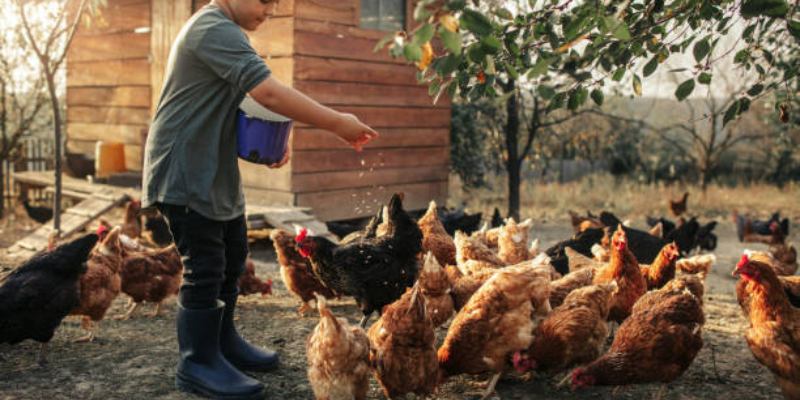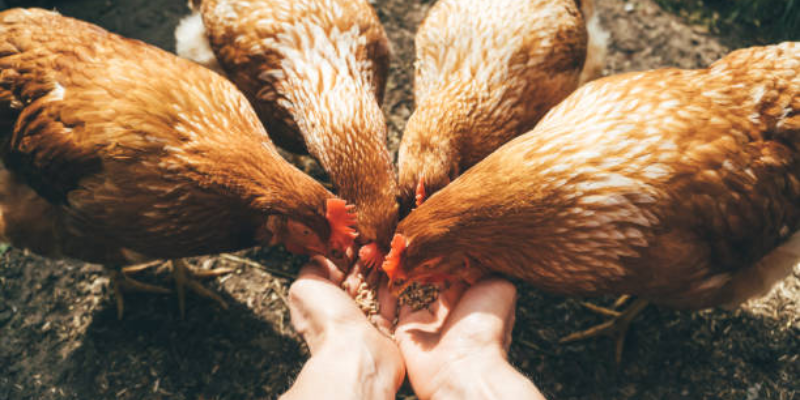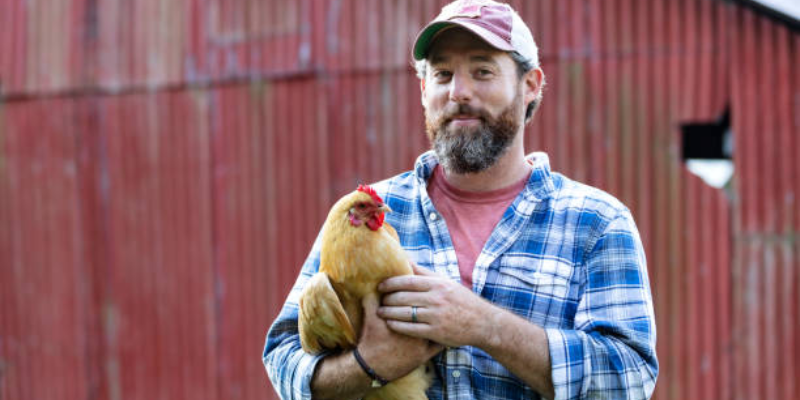So, you've leapt the cluck club? Raising chickens is one of the most gratifying hobbies—or, if you prefer, a lifestyle. I've been there, anxiously googling "how to keep chickens alive" at 2 a.m., and I'm here with everything I learned. This checklist will help you with each step, from making a cosy coop to avoiding rookie mistakes that could ruffle your feathers. Let's get started.
Coop Setup: Where Your Chickens Are Right At Home
So teach your chickens right: Home is their castle. A good coop keeps them safe, warm, and healthy. Here's what you need:
Size Matters: Allow at least 2–3 square feet of space indoors per chicken and 8–10 square feet of space per chicken bumping about in the run. Overcrowding causes Stress, disease and pecking fights. Trust me — I once regretted cramming four hens into a small coop.

Insulation & Ventilation—Chickens can create a lot of moisture and heat. Install mesh windows for airflow, but cover them with hardware cloth to keep out predators. In winter, straw bales or insulated panels keep the coop warm.
Roosting Bars: Chickens like to roost. Wooden bars up to 2-4 feet off the ground. Skip plastic or metal—they're too cold or hot.
Nesting boxes: one per 3-4 hens. Scatter straw or pine shavings in them. Put them in a quiet corner — hens like privacy when they lay eggs.
Low Maintenance: Use removable trays or a droppings board under roosts. Believe me, you will thank yourself in the future for this.
Predator Proofing: Foxes Don’t Knock
Chickens are tasty prey for raccoons, snakes, and even neighbourhood dogs. A raccoon wiped out my first flock because I believed a flimsy chicken wire fence would suffice. Lesson learned.
Fencing: Bury hardware cloth 12 inches deep to stop diggers. Extend it 2 feet high, then add electric fencing if predators are bold.
Locks: Use carabiners or padlocks on coop doors. Raccoons can open simple latches.
Night Lights: Motion-activated lights scare away nocturnal invaders.
The Feed: No, They Can’t Survive On Bread Alone
They need a balanced diet to lay eggs and stay healthy. I used to throw them kitchen scraps until I learned they lacked the proper nutrients.
Layer Feed: The foundation of their diet. Look for 16-18% protein. Your chickens won’t judge: Pellets or crumbles are fine.
Grit & Calcium: They use grit to digest food. Oyster shell is a great calcium provider for good eggshells.
Treats—Treat them in moderation. Fruits, veggies, and mealworms are all okay, but keep them at 10% of their diet. Do not give them avocado, chocolate, or salty snacks—they're poisonous.
Clean Water: Change it daily. Hang a waterer to keep it dirt-free.

Health Checks: Chickens Hide Illness
Chickens are experts at disguising when they’re sick. By the time you see it, it may be too late. Here’s how to stay ahead:
Visit Daily: Watch for 5 minutes. Are they active? Eating? Fluffed-up feathers or laboured Breathing signals trouble.
First Aid Kit: Keep antiseptic spray, vet wrap, and electrolyte powder on hand. I store mine in a toolbox by the coop.
Vet access: Seek out poultry-savvy vets before emergencies arise. Not all vets treat chickens.
Quarantine New Birds: Isolate new birds for at least 30 days. Diseases spread fast.
Hygiene: Make Sure Your Coop Doesn’t Become a Petri Dish
A filthy coop is a breeding ground for disease and pests. I clean mine every week, but I clean it deep monthly.
Remove Wet Litter: Wetness breeds mold and mites. Replace damp bedding ASAP.
Dust Bath: Chickens take dust baths to prevent mites. Create a sandbox of diatomaceous earth and sand.
Boot Routine: Maintain a separate pair of coop shoes. Wash your hands after touching chickens or eggs.
Beat The Cold & Heat: How To Survive Extreme Weather
Chickens are adaptable but need assistance in extreme conditions.
Winter: Insulate, but skip heating lamps (there is a fire risk!). Give them warm water and high-calorie snacks such as corn.
Summer: Freeze water bottles for them to snuggle against. Shade is non-negotiable.
The Journey Of The Egg: From Nest To Fridge
Fresh eggs are a bonus, but they require attention.
Gather Daily: Eggs are more liable to spoil and attract rats if left in the coop.
Clean Gently: Wipe away dirt using a dry cloth. Don't wash, except when needed — water removes the protective bloom.
Storage: Store in a cool place. Unwashed eggs last 2-3 weeks.
Social Life: Chickens Need Friends (But Not Too Many)
Chickens are social creatures that can be particular about their company. Take your time introducing new members to the flock.
Keep It Small: 3-4 Hens Are Suitable For Novices.
Introduce Gradually. When you bring new birds home, please keep them in a separate run near the coop for a week. If they are reluctant, allow supervised mingling.

Legal Stuff: Check Local Laws
Check your city's rules before purchasing chicks. Certain territories also cap flock size or outlaw roosters. When the neighbour complained, someone, I know had to get rid of her noisy rooster.
Enjoy The Journey
Raising chickens has a learning curve. You'll mess things up—I've left the door to the coop open and found one of my chickens in my garage. But it's worth it for the fresh eggs, squawky personalities, and joy in nurturing these birds.
-
Decadent Desserts for Special Occasions
Creating desserts that match the splendor of special occasions doesn't have to be reserved for professional pastry chefs. With the right recipes and a touch of creativity, you can craft stunning confections in your own kitchen. This guide will walk you through a selection of special occasion dessert recipes, tips for making impressive desserts at home, and provide you with dessert ideas for celebrations that will leave your guests in awe.
-
Why You Should Attend Food Festivals
Food festivals are more than mere congregations of gastronomes. They are grand celebrations of culture, innovation, and communal spirit. Attending food festivals in 2024 proffers myriad benefits that transcend mere gustatory gratification. Here, we will explore why these events should be on your agenda.
-
4 Benefits of Feeding Your Pet a Raw Diet: A Healthier and Happier Pet
Do you want a healthier and happier pet? If so, you may want to consider feeding them a raw diet. This diet is the best way to ensure that your pet is getting the nutrients they need to thrive. This is a complete and balanced diet, and they are easy for dogs and cats to digest.